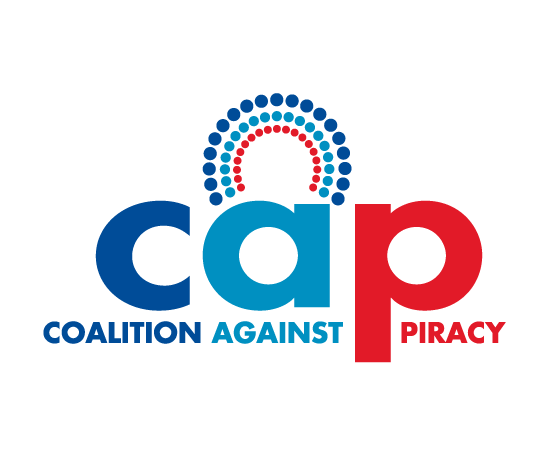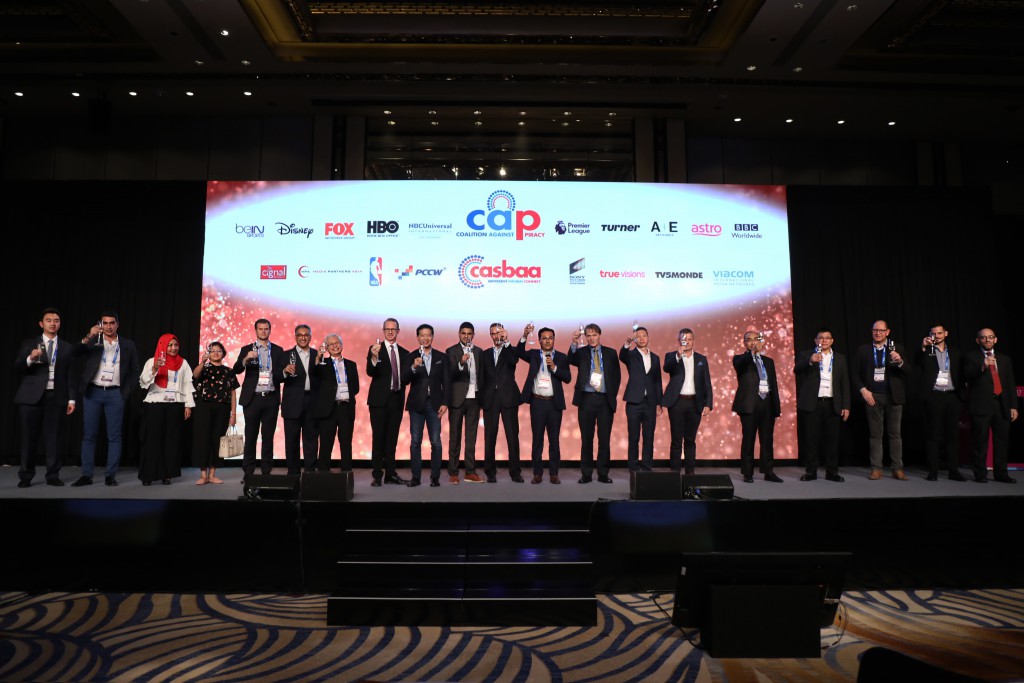India opens the batting for Day 2 at CASBAA Convention 2017
Macau, 09 November 2017 – News of the Pay-TV and digital video markets in India topped the agenda as the second day of the CASBAA Convention 2017 in Macau kicked off yesterday morning.
“An improvement in India’s global ranking for the ‘Ease of Doing Business’ is not just eyewash”, said NK Sinha, India’s Secretary for Ministry of Information and Broadcasting (MIB) during a special CASBAA Convention 2017 conference session dedicated to the India market with a focused on satellite, broadband and content issues.
Sinha added that talks between the Department of Space (DoS) and the Indian Space Research Organisation (ISRO) remain on-going on the liberalisation of licensing constraints on Indian Pay-TV platforms and channels capacity leasing on foreign satellites.
Meanwhile, RS Sharma, chairman of the powerful Telecom Regulatory Authority of India (TRAI) said his organisation continues to press for an “open skies” satellite policy. But “these are not issues of principle, but of operation”, he told the CASBAA annual meeting.
Referring to the provision of broadband services for India, for which TRAI is also responsible, Sharma also had words of encouragement for satellite operators saying that to ensure affordable broadband in rural areas, India needs to make use of satellites. He added that TRAI is studying stakeholder comments on a consultation paper on the ease of doing business in the broadcast sector “to resolve matters”.
As for the rollout of a multi-million dollar National Fibre Network in India, or Bharat Net, Sharma said the project now has a “public-private” business structure, not only for broadband data distribution, but also for the delivery of video services. “Come, analyse and invest in the Indian broadcast sector”, he told the 400 CASBAA delegates in one of Macau’s vast casino complexes.
Sudhanshu Vats, Viacom18:
As the Keynote Speaker for the day, Sudhanshu Vats, Group CEO Viacom18, said that “India’s market evolution is now similar to that of China. In 2017 India is where China was in 2011”, and the opportunities remain enormous.
However, “as in China, we need a robust pipeline for content and creative talent, but the challenge is developing that talent, and retaining it. Secondly, media companies need to pivot a little bit to be vertically capable. That’s why Viacom18 will build an engineering hub in Bangalore which will help us with our technical products”.
“What has surprised me is the nature of the media disruption we are experiencing in India. Not long ago you wouldn’t have expected some of the big media companies to consolidate with the telecom companies.”
And just a few more quotable quotes.
“New Channels”:
Jean-Rene Aucouturier: Lagardere: “OTT gives us opportunity. We all have strong libraries. Non-linear development offers other revenue for that content.”
Nela Pavlouska, My Zen TV: “We have succeeded in developed mature and difficult markets of Europe and North America – we can do so in Asia too, not in two months or one year, because the market is mature, but we take a long term view.”
Roch Pellerin, TRT World: “TRT is an independent Turkish news organisation launched six weeks ago in Australia and now carried on Roku, an OTT platform … People who watch news … watch more news … and watch the channel”.
Roger Wyllie Rialto / Pulse TV: “Pulse TV offers a platform for emerging [documentary] filmmakers to showcase their long form content. We often tell hard stories told from two/both sides – balanced”.
On Research:
Nick Burfitt, Katar Media: “It’s important not to lose sight of core TV measurement. Only then can you layer extended video measurements … Matching viewing data to purchase data … reports based on buyer behaviour. e.g I want to reach non-buyers of a certain brand or category”.
Partho Dasgupta, BARC: “BARC is in the unenviable position of being both the joint industry body and the operator of the service. It was a herculean task to change the currency … The broadcasters took the lead and the advertisers, agencies came in followed by the government and regulators. BARC has now collected 7.5 petabytes of data which will move to about 20 petabytes in a couple of years.”
Aimee Gerry, Nielsen: “More data is not necessarily better. For us it is about bringing disparate data together with a Truth Set … one centralised data set.”
Rita Chan, GfK: “Trust is very important: from broadcasters, advertisers, panellists, [panel] recruiters, your own staff.”
Dave Downey, INVIDI: “We don’t oversaturate or under-deliver the audience … With addressable advertising clients can reach the right audience no matter what or when they are watching.”
Sally Wu, BBC Global News: A BBC audience survey across five markets. “Seventy-seven percent of respondents see international news as more important than previously. 79% in APAC concerned about ‘fake news’ … two in three find it hard to distinguish fake from real. … 79% value accuracy over speed … 65% are more inclined to try a brand if it’s promoted on a trusted source. … international news channels are most trusted … 34% International news will be viewed first to follow up on breaking news. … Social media amplifies and drives viewers to traditional news channels (BBC). … International news is the most used segment on pay TV.”
Jean-Christophe Jubin, Viaccess-Orca: “Big data is changing the way TV is run. It’s making understanding your customers more efficient; and, is creating a new business model. … With improved pattern analysis, addressable TV/Programmatic TV has become easier, putting TV operators in a better position to sell their ad space to advertisers.”
Jeremy Butteriss, Google: “YouTube has seen 90% year on year growth in access from connected TV/Smart TVs. … Voice already represents 20% of our global searches and we believe that will be 50% by 2020, fuelled by Assistant. Nine out of the top ten TV shows in China are exported to the rest of the world via YouTube. … Cloud and AI have taken clipping and segmentation [e.g. of gameshows, sports] from an art to a repeatable automated service.”
OTT:
Simon Vella, MPP Global: “It’s easier to say “no” rather than to say “yes”. … Drivers of choice split between rational drivers and emotional drivers. … People are irrational, they want choice, but it’s important that are not forced into choice. … When forced with two extremes most will choose the better value. … Introduce a middle tier between the two extremes, and ARPU can increase by up to 21%. … Consumers can process 4-7 offers, provided they are clear, and are guided. …Think: Where can I start them from and where can I lead them to? Start small and build habits, event timed purchases, limited time offers to drive the F.O.M.O: (Fear of Missing Out).”
Three OTT Things in 6 Mins with Simon Trudelle, NAGRA: Thinking about launching an OTT service? Three key things you need to know: 1. Invest in a compelling user experience on all screens; 2. Leverage your platform technology; 3. Invest in anti-piracy measures: monitoring systems/take down programs.
Scot Mason, ARRIS: Delivering Gigabites to every corner of the home. … Broadband subscribers just want same speed they’re paying for. … Home gateways are asked to do a lot … “Improve home coverage with small WiFi extenders which adapt to the traffic generated by a device”. [“Don’t skimp on antennas, equipment quality and industrial design”]
Birathon Kasemsri, True Corp: “eSports is the next generation of sport for millennials. There are 200 million spectators annually, 40,000 professional players and US$20 million in prizes. … It is like no other sport because it is not a monopoly … and media companies must take control of their digital destiny … and create an international league which would eventually fill a 24-hour eSports channel. … Unlike normal sports, eSports value is created by broadcasters who can leverage eyeballs and thus sponsorship value.”
CASBAA Chairman’s Award 2017: The CASBAA Chairman’s Award for the best contribution to the development of the Pay-TV and digital video industry in Asia over the past 12 months was made to Singtel and StarHub for their combined initiative to lead the fight in Singapore against Video Piracy Syndicates. The presentation was made by Joe Welch, Chairman, CASBAA Board of Directors, and S.V.P. Public Affairs Asia, 21st Century Fox.
CASBAA would like to thank CASBAA Convention 2017’s Supporting Sponsor, TRT World, along with our other Sponsors:
21st Century Fox, ABS, Amagi, APT Satellite, ARRIS, AsiaSat, Australia Channel, Brightcove, Cisco, CMS Cameron McKenna Nabarro Olswang, Deutsche Welle, The Walt Disney Company, FashionTV, FOX Networks Group, France 24, Friend MTS, Google, Intelsat, INVIDI Technologies, Irdeto, Leyard, Lightning International, MEASAT, MPP Global, NAGRA, SES, True Visions, Turner Asia Pacific, TV5MONDE, Viaccess-Orca, Vindicia and Viu.
We would also like to thank CASBAA Patrons: A+E Networks, Astro, BAM Asia Entertainment Network, BBC Worldwide, Celestial Tiger, Discovery Networks Asia-Pacific, HBO Asia, NBCUniversal International Networks, PwC, Scripps Networks Interactive Asia-Pacific, Star India, and Viacom International Media Networks.
-ends-
About CASBAA
Established in 1991, CASBAA is the association for digital multichannel TV, content, platforms, advertising and video delivery across a variety of geographic markets throughout the Asia-Pacific. CASBAA’s members reach over 500 million connections within a regional footprint ranging from China to Australasia, Japan to Pakistan. For more information, visit www.casbaa.com.
Contact CASBAA
For media contacts and additional background contact:
Tel: +852 2854 9913 pr@casbaa.com




